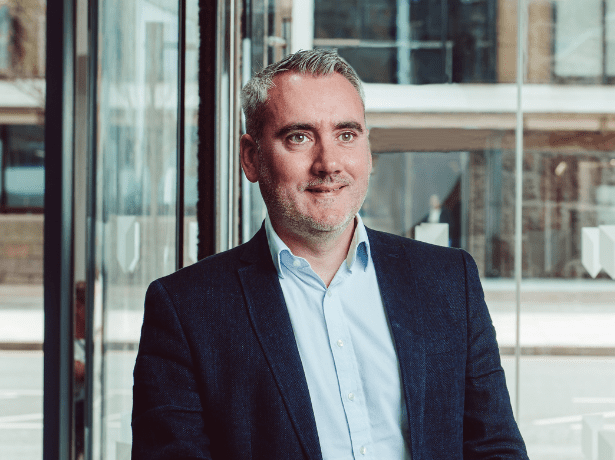New survey data shows PE firms need greater efficiency, reporting, and staffing help, all things the right third-party fund administrator can provide.
Is the Private Equity market growing or shrinking? Has the “Great Resignation” affected funds’ ability to compete for talent? Will the lowering of fees due to stiff competition continue to put a crunch on funds’ processes? It depends on who you ask, but the recurring theme of most analysis is “uncertainty.”
Bain & Company’s 2023 Global Private Equity Report offers a cautious look at the future of PE: “As buyers, sellers, and lenders all wait for clarity around the economic forces that could affect cash flows, uncertainty will continue to act as a cap on deal activity.” The report predicts short-term turmoil with potentially better news in the long term, though it lists tightening labor markets and shifting interest rates as risk factors that will affect PE’s ability to rebound from an unexpected downturn in 2022, when investments, exits, and fundraising all declined.
We’ve mentioned before how the same report indicates Private Equity’s outpacing of public markets means institutional investors are overallocated to private markets, limiting PE’s traditional sources of capital and causing a shift in strategy toward individual investors and family offices. That means greater competition for capital and new marketing strategies, along with a potential need to offer lower management fees to attract High Net Worth Investors (HNWI).
Another report offers a similarly cautious view on PE’s immediate and long-term future. EY’s Global Private Equity Survey has been an excellent source of information in the past regarding trends in the industry. This year’s survey of Private Equity COOs, CFOs, and financial executives says this regarding the uncertainly currently facing the PE market:
“We expect the immediate future to be marked by economic uncertainty, due to rising interest rates and other geopolitical issues. At this point, it’s hard to determine what impact these external factors will have on the private equity market and investors’ appetite for new deals.”
More than half of firms based in the Americas said they were concerned about a global recession. Yet 44% of survey respondents anticipate “accelerated growth” over the next three years. The balance in support of those seemingly opposing ideas highlights just how much disagreement there is on the future of the industry.
Given this uncertainty, what should CFOs do to position their funds for success? The EY survey provides some answers as to what challenges CFOs have been facing and what will be the major differentiators in the next era of Private Equity.
PE funds look to improve back-office efficiency in the face of an uncertain future
Whether one’s view on the future of the PE market is pessimistic or optimistic, margin erosion is a concern for many fund managers, and the EY survey points to CFOs employing technology and outsourcing as being ahead of the curve.
“Those CFOs who can combine data with a strategic mindset are being rewarded by private equity firms,” says the report, “and CFOs at the largest funds are expected to focus on reviewing strategic transaction options and spending less time on overseeing transactional work such as completing audits and performing the valuation process.”
For the CFO to spend less time on audits and NAVs, those duties need to be picked up elsewhere. Outsourcing to a third-party fund administrator can help with those processes, and investments in technology can mean faster delivery of necessary calculations.
Investments in technology can also help prepare managers for the possibility of increased regulation, which could include national or international regulations regarding funds and their connection to larger issues like the environment. These regulations can be complicated, especially for firms that operate overseas, and require a level of expertise most fund managers lack.
According to the EY survey, “Less than half of midsize and smaller firms believed they were knowledgeable on all the proposed or enacted regulations that could impact their firms.”
At the same time, investors also want greater access to fund information. One of EY’s top priorities for CFOs is that they “Build out the company infrastructure to better support decision making and improved reporting to key stakeholders.”
Other top priorities listed include CFOs embracing “their role as strategic leaders” and that they “augment their strategic focus on talent management,” an area that was thrust into the spotlight after COVID-19. The pandemic and its aftermath affected all industries, especially those not prepared for the realities of remote work.
“Private equity has always been a people-intensive business, and the firms that are capable of recruiting and retaining talent, in both the front and back office, have consistently achieved a competitive edge,” says EY.
So how can firms gain an edge when margins are a priority, talent is at a premium, and the fundraising environment is more competitive than ever? Technology, efficiency, outsourcing, transparency – all of these are things the right fund administrator can help with.
How technology is improving efficiency
With margin erosion a perennial threat, improving efficiency can mean the difference for funds’ bottom lines. It can also be a deciding factor in fundraising: as investors seek out funds with lower fees, those who can lower costs will have a competitive advantage.
JTC’s Private Equity Fund Administration solution is purpose-built to meet the specific needs of the sector, and relies on advances in technology that can speed up processes while making them more accurate. Many funds still use spreadsheets or physical documents, making data integration, onboarding, and report generation cumbersome, slow, and mistake-ridden.
We treat data processing differently by focusing on the data itself. Instead of reformatting each source to the general ledger, the data is at the forefront so it can be exported to any format necessary. Automated processes allow for continual improvements in efficiency and accuracy so errors can be identified quickly. The result is faster and more accurate handling of data.
Another area where technology can affect efficiency is in reporting. As EY notes, “With ever-changing technology solutions, investments in automation and operational efficiency are continuing with an eye on supporting growth and achieving fiscal goals as well as to generate reporting that will help stakeholders make better decisions.”
The faster managers can get accurate data, the faster they can make decisions that will affect the performance of the fund. This ability to generate reports faster also helps with another major differentiator: transparency for investors.
Fund administration and transparency
Today’s investors, especially the type of HNWIs now being courted by Private Equity, want to keep a close eye on their investments. The more often reports can be generated, the more comfortable they will be. And with tax-advantaged investments like those in Opportunity Zones, investors need access to information for tax purposes and don’t want to have to wait for it.
That’s why JTC offers a secure online portal with 24/7 access to fund and investment information, with downloadable documents and automated report generation so investors can get the information they need when they need it.
Investors in 2023 have a lot of options to choose from, and increasingly want investments that fit with their values. Impact investing and ESG, though very different in terms of their strategies, have become a major part of the decision-making process for many investors. So how do you attract investors who care about the impact a project is going to have?
JTC works to provide industry-leading impact reporting that quantifies the social impact of projects based on leading metrics, updated throughout an investment’s life cycle. Investors will be able to see that your firm takes its societal responsibility seriously and that the fund will achieve a positive impact while also offering competitive returns.
Technology has also become crucial when it comes to staffing. The nature of the workplace has changed, and in a competitive hiring environment, securing top talent and keeping staff levels under control will require innovative solutions.
The advantages of outsourcing
In response to the question, “How is your firm responding to continued growth through the Great Resignation?” 59% of funds over $15 billion said, “Increased outsourcing,” compared to 11% of those under $2.5 billion. Outsourcing is clearly important for keeping up with necessary staffing levels, and these numbers might lead one to believe larger funds were ahead of the curve, but it may be the opposite. 55% of the smallest funds said they were not impacted at all by the “Great Resignation,” meaning they were perhaps better prepared in terms of both technology and outsourcing, and experienced fewer hiccups in hiring.
According to EY, “smaller firms have been relying almost exclusively on outsourcing back office functions. Utilizing outsourcing arrangements not only helps in challenging hiring periods, but it also frees up internal headcount to support more strategic initiatives rather than focus on more routine requirements.”
By working with a third-party fund administrator that handle a variety of back-office tasks, fund managers can spend their time on what they do best: raising and deploying capital. Having a flexible fund administration solution also means no longer having to hire extra staff during busy periods or struggling to adjust when a key team member leaves. But all of this is only true if the relationship with the administrator is working as it should.
“If outsourcing service providers are being used, it is important that the firms have put in an oversight process and have routine, effective communications to get the maximum output from those service providers,” says EY.
At JTC, we pride ourselves on our “one team” approach. Instead of farming out your processes to independent teams that don’t communicate with each other, you’ll have a cooperating team that works together on your fund. With a single point of contact, you’ll always know who to call with questions. And when situations change, we can quickly adapt our services to your needs.
Efficiency through adaptable fund administration
The biggest thing that sets JTC apart from other fund administrators is that our solutions are customizable. Newer funds can get the services they need, like investor onboarding and operational due diligence, with the ability to add more services as they grow. Mid-market and growing funds can get the back-office help they need purpose-built for the increased regulation that comes with specialization. Larger funds can get institutional-grade services for new investment strategies and global fundraising, allowing them to de-risk their operational infrastructure as they scale. In short, you can get the help you need without paying for things you don’t, and as your fund grows, we can grow with you.
There’s also the continual worry of changing regulations. Whether you’re expanding into new territories, entering a specialized sector, or adjusting to new laws, we can adapt our processes to meet those requirements and work with you to address compliance challenges.
It’s still unknown what the next era for Private Equity will bring, but CFOs need to be prepared: they need increased efficiency and transparency to stand apart from the competition, outsourcing and technology solutions to deal with the new realities of the virtual workplace, and adaptable administration to deliver compliance without hindering growth. JTC’s customizable solutions are built for PE’s next era, designed to help our clients succeed.
To learn more about JTC’s Private Equity Fund Administration solution, click here.
Stay Connected
Stay up to date with expert insights, latest updates and exclusive content.
Discover more
Stay informed with JTC’s latest news, reports, thought leadership, and industry insights.
Let’s Bring Your Vision to Life
From 2,300 employee owners to 14,000+ clients, our journey is marked by stability and success.


















